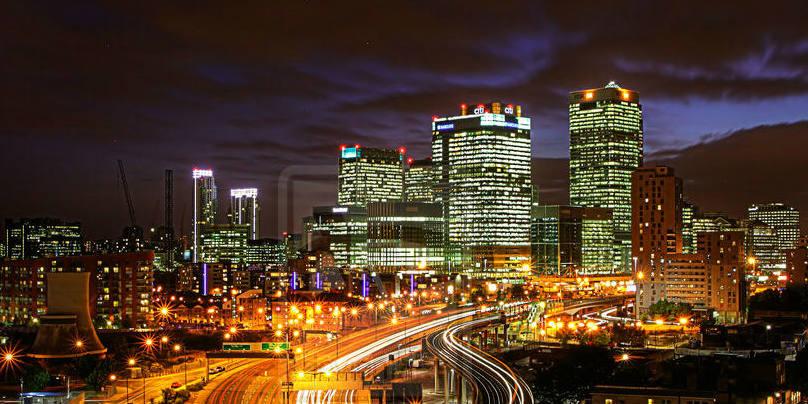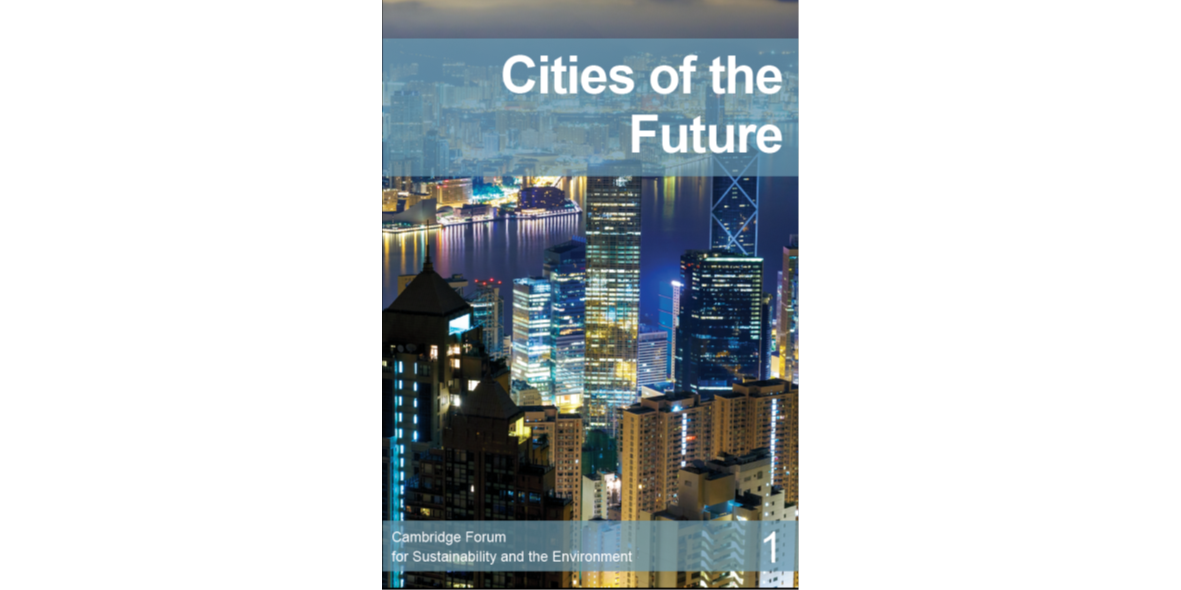
Sustainable cities was the ideal topic for the Forum to explore first as it brings together social, biological and physical sciences as well as the arts and the humanities.
Every city is unique and there is no ‘silver bullet’ to make them all more sustainable, since there are many aspects of a city that fall under the banner of ‘sustainability’. Rather than just saying ‘cities are complicated’, the Forum used the many disciplines and areas of expertise of the people who came each month to make connections between different facets of sustainability and the environment in future cities and the governance needed to support those linkages.
The Forum was interested in questioning the kinds of assumptions that we, as researchers, and policy and decisions makers, make about sustainability and the environment in cities and what new connections could be made to challenge those assumptions.
Joining the dots
One aspect of sustainability is that people have the means and desire to continue to live in a place. A city that is not an attractive place to live, therefore will not ‘sustain’ itself. Equally, a city that distributes risks and benefits inequitably, or that fails to share responsibilities and powers among the residents, will become increasingly difficult to govern. However, there is an historical meaning to the term sustainability from the 18thcentury onwards that is much more narrowly defined (or more tightly focused) and concentrates on environmental aspects of sustainability and the way we use resources to meet human needs and maintain the economy. By considering very narrow aspects of sustainability individually – air quality, water quality, carbon and the ozone layer – we started to ask ourselves, have we lost the ability to look at the bigger picture? Or, has the tendency to include under the word ‘sustainability’ so many aspects of what one might call a ‘good city’ made the term so diffuse as to render it useless as a base for practical actions and for research?
When we started to plan this topic, it became clear that in order to ‘think big’ about what makes a good city, a successful city, it was essential to consider the way people live in cities alongside the environment and all the other factors. This multi-faceted approach gives rise to a series of questions about the effect of cities on the way we think, on the way we design the places we live, on nature and on the environment.
A bird's eye view of our meetings
The speed and the scale of growth of future cities stimulated a series of discussions in the Forum about the size and form of future cities, particularly whether bigger cities are better for the people who live there (and if so, why) and how building design can influence both environmental and social sustainability. Although it is easy to think generically about ‘cities’, some such as Masdar City in Abu Dhabi or Chongqing in South West China are completely new and everything within them is being built from scratch and according to a master plan. However, these new cities are relatively rare and most cities are well established and face challenges of how to manage and build on their existing populations and infrastructure while growing, or in some cases declining. Over the course of the year, we therefore drew on examples from cities all over the world to help us to think about both the new and the old, the expanding and shrinking cities.
Connectivity and flow were two recurring themes examining how resources, people and goods link and influence each other and move from one part of a city to another (or out into the surrounding countryside). Green spaces in cities – parks, gardens, canals and waterways – are an ideal testing ground for ideas related to connectivity as they are not only core to our well-being, they can also have a positive impact on physical and mental health, local economies and on the environment. The witnesses stimulated a broad ranging and fascinating series of discussions about the effect that green spaces have on the areas around them, on a sense of well-being and on the sustainability performance of the city as a whole.
Many of the Forum’s discussions took a ‘bird’s eye view’ of cities, thinking of them as systems whose growth must be managed in coordinated fashion. Not every part of a city can be neatly fitted into a systems view like this, and a number of the expert witnesses also stressed the importance of bearing in mind the ‘murky’ interactions which lie at the heart of cities – the hidden elements, the slums, the illegal and informal networks - which make them such rich and complex places to live in. Hence the tendency of planners and public policy analysts to attempt to ’engineer’ all parts of a city’s system will at the best be problematic and at worst counterproductive.
Technology and big data will radically change the way people live in cities and this led the Forum to ask a much broader question about ways in which ‘smart’ data and smart cities move beyond controlling traffic lights and transport systems to positively impacting the environment and the lives of the people who live there. Technologically advanced solutions are not always the best and some of the witnesses argued that innovative ways of approaching environmental sustainability may come from the rapidly expanding cities in developing countries - where expensive technological solutions may not be feasible - rather than only from cities such as New York or London.
Governance is a key issue in cities but there are many different levels of governance ranging from national to regional, county and city level, and public and private sector. Is city governance adequately keeping up with the changes we can see in the future? Do we need to radically re-think the ways in which we govern cities to keep pace with these changes or can we modify what we are doing now?
There are examples of successful cities and failed cities, but every city is unique and a common theme running through the discussions was that the concept of resilience and the capacity to learn and adapt to new situations lies at the heart of the way they will adapt to the challenges they face. Many of the witnesses were involved in city policy, management and planning and naturally, studying how cities work. In reality, a lot of what really happens in cities is completely unplanned and informal. Rapidly expanding cities in Latin America, Africa and Asia are raising questions about the way in which we traditionally see cities as being planned and controlled and the role of the inhabitants in the way they are governed.
This is opening a new middle ground for governance, sitting between top-down systems control and bottom-up autonomy of individual choice, perhaps enabled by technology such as smart phones and social media. Such a middle ground may produce sustainability solutions which aren’t perfect from the perspective systems optimisation, but which are ‘good enough’ to put into practice and provide a sense of ownership for inhabitants.
Our meetings
In the Forum’s monthly meetings between October 2013 and June 2014, a rich mixture of policy- and decision-makers from governments and business, technical experts and researchers were invited to be ‘expert witnesses’,to provide their perspective on sustainability and governance in future cities and to answer questions about the greatest challenges they face in their area of expertise.
One of the aims of holding these witness sessions was to bring people together who would not usually meet each other but who are working in areas which overlap enough to stimulate an interesting discussion. There were therefore three or four witnesses on the panel each month and to start the discussion, they were all asked two core questions:
- What are the characteristics of a sustainable city and the drivers which influence these?
- Do we have the governance systems in place in order to support this vision?
In addition, they were asked to reflect on where they see the most significant gaps in society’s understanding of the sustainability of cities. Their answers were used as a springboard for the discussion during the rest of the meeting.
Each meeting had a different theme. For example, in November 2013, we discussed wellbeing, green spaces, urban biodiversity and urban landscapes and in March 2014, we concentrated on connectivity, big data, flows and resilience. All the witnesses who attended can be seen here.



